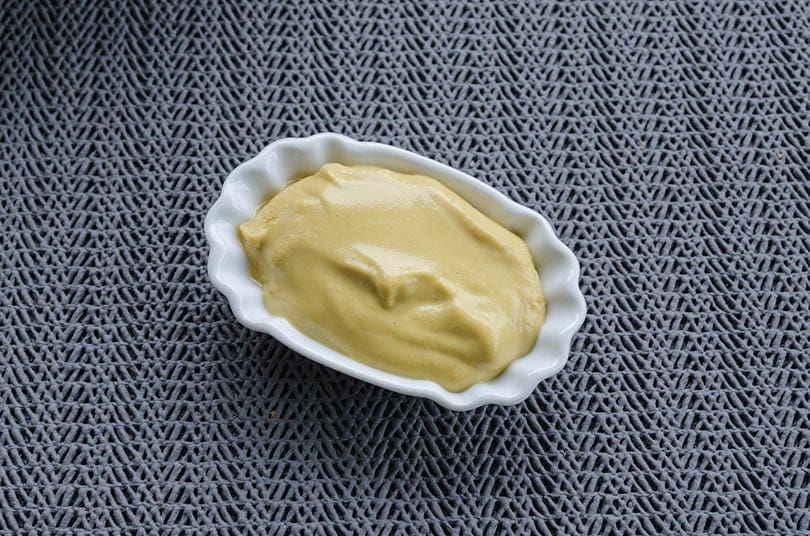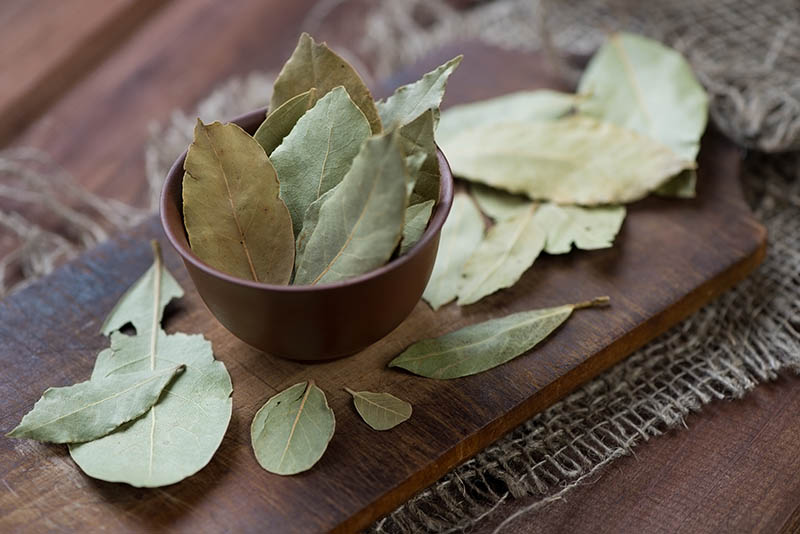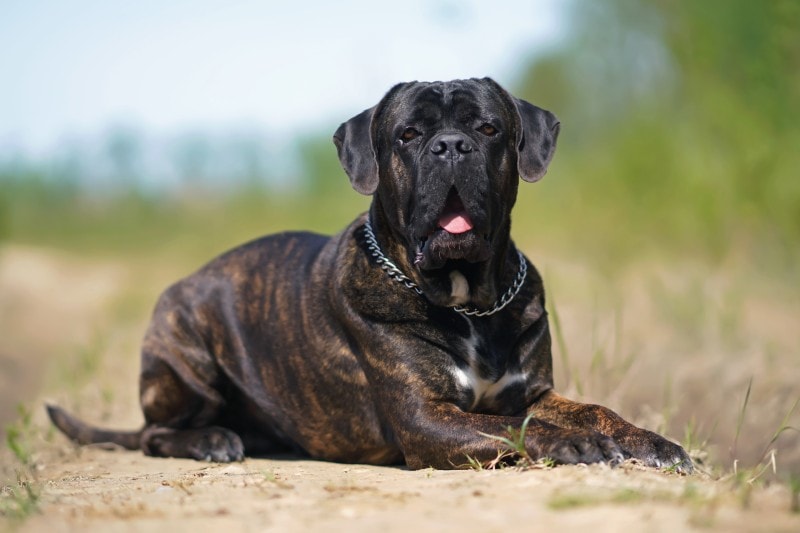Can Dogs Eat Mustard? Vet-Reviewed Facts & Safety Guidelines
By Jessica Kim
Updated on

Many dogs are skilled at sneaking food off tables and countertops. They may find an irresistible piece of food and gobble it up without thinking about how the food’s been seasoned. Hot dogs are a fan favorite amongst dogs, but they can be unsafe for dogs to eat if mustard is spread on them. Mustard is bad for dogs and eating it can lead to an upset stomach or chronic health issues. So, it’s important to keep this condiment and anything seasoned with it at a safe distance from your dog.
Mustard Is Toxic to Dogs
There’s no denying that mustard has some health benefits and is rich in nutrients. Mustard seeds are an excellent source of vitamin C,1 thiamin, riboflavin, copper, calcium, and iron. However, it’s important to note that humans can benefit from eating mustard seeds, while mustard seeds aren’t at all safe for dogs to eat.
All types of mustard are known to be toxic to dogs,2 including Dijon mustard, honey mustard, whole grain mustard, and yellow mustard. The mustard seeds that these condiments are made up of contain toxic components that can upset a dog’s stomach. Consuming too much over time can lead to gastrointestinal health and digestive issues, like gastroenteritis,3 which is a condition when the stomach and intestines become inflamed.
Different types of mustard can also contain additional ingredients that aren’t beneficial to dogs. They can be mixed with other spices that make dogs sick or may be high in fat and sugar. Hot mustard can also contain hot peppers. While spicy foods in themselves aren’t toxic to dogs, they can still cause digestive discomfort, just like how they can with humans.

What to Do If Your Dog Eats Mustard
If you’ve noticed that your dog’s eaten some mustard, it’s best to contact your veterinarian or a pet poison hotline for consultation. Mustard usually affects smaller dogs more severely, so it’s especially important to get expert advice if you have a small dog that’s eaten a small amount of mustard.
It’s important to monitor your dog’s condition and be on the lookout for signs of illness or complications. Common signs of an upset stomach include loss of appetite, gassiness, lethargy, vomiting, and diarrhea. You may also notice pacing and abdominal pain, and your dog may act needier and seek comfort from you.
If your dog has a mild upset stomach, your veterinarian may suggest monitoring at home. More severe cases will require an emergency visit to your veterinarian to get your dog to a stabilized condition.
Dogs and Spices and Condiments
When it comes to condiments like mustard, it’s best to keep your dog from eating them. They can contain a lot of unhealthy or unsafe ingredients for dogs, like sugar, garlic powder, nutmeg, and bay leaves. They can also have a high fat content, which can lead to excessive weight gain and obesity over time.
Mustard powder is a spice that’s toxic to dogs, and spice blends generally should be avoided due to the possibility of containing unsafe ingredients. However, some individual spices are safe for dogs to eat.
Dogs can safely eat small quantities of certain spices and dried herbs, like cilantro, cinnamon, ginger, and rosemary. These herbs and spices contain nutrients that are beneficial to dogs and can boost their diets. However, it’s best to consult your veterinarian first if you’re interested in giving your dog natural remedies or supplements. This is because some herbs and spices can interfere with medication or negatively affect dogs with certain chronic health issues. Feeding your dog excessive quantities of spices can also end up causing adverse health effects.

Final Thoughts
Overall, dogs shouldn’t eat mustard because it’s toxic to them and can lead to gastrointestinal issues. So, if your dog accidentally eats some mustard, make sure to keep watch for any signs of discomfort or pain, and contact your veterinarian to ensure you know how to best care for your dog.
The best way to prevent dogs from getting sick from mustard is to prevent your dog from accessing it altogether. So, make sure to keep this condiment safely stored away and keep food topped with mustard at places that are unreachable to your dog.
You Might Also Be Interested In:
Featured Image Credit: Aleks shutter, Shutterstock












